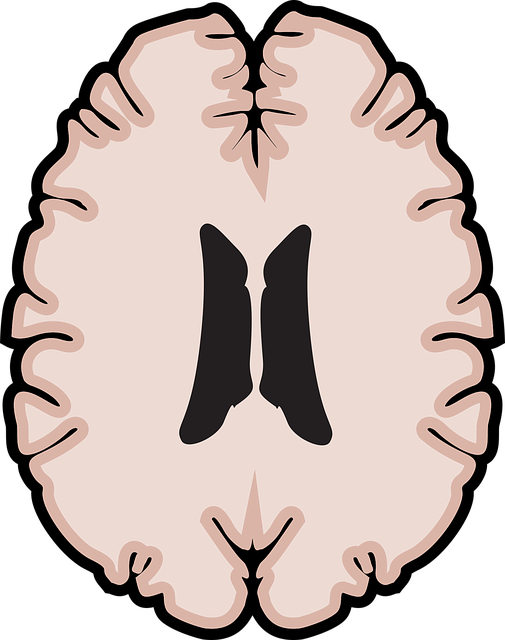Castle Rock Divorce Therapy focuses on emotion regulation as a core element of its therapeutic process, aiming to support individuals through divorce and life transitions. Through techniques like mindfulness and cognitive reframing, clients learn to manage moods, prevent burnout, and healthily process emotions. By identifying triggers and adopting proactive coping strategies, individuals gain long-term stability and improved well-being. Mindfulness practices cultivate emotional resilience, enabling clients to navigate feelings with stability and empathy. Cognitive reframing helps challenge negative thoughts, fostering positive thinking and mental health awareness during stressful divorce situations. This holistic approach prioritizes building resilience for effective stress management and personal growth post-divorce.
Emotion regulation techniques are essential tools for managing stress and fostering healthy relationships, especially in challenging situations like divorce. Inspired by Castle Rock Divorce Therapy, this article explores foundational strategies to navigate emotional turmoil. We’ll delve into identifying triggers, cultivating mindfulness, challenging cognitive distortions, and building resilience – all crucial components of the Castle Rock approach. By understanding these techniques, individuals can gain greater control over their emotions, leading to improved mental wellbeing.
- Understanding Emotion Regulation: The Foundation of Castle Rock Divorce Therapy
- Identifying Triggers: Recognizing Patterns for Effective Coping
- Mindfulness and Meditation: Tools to Stay Grounded in the Moment
- Cognitive Reframing: Challenging Negative Thoughts and Beliefs
- Building Resilience: Strategies for Long-Term Emotional Wellbeing
Understanding Emotion Regulation: The Foundation of Castle Rock Divorce Therapy

Emotion regulation is a cornerstone of Castle Rock Divorce Therapy, emphasizing its foundational role in fostering resilience and healing during life’s transitions. This therapeutic approach recognizes that understanding and managing emotions are essential for individuals to navigate the complexities of divorce and subsequent life changes. By teaching effective emotional well-being promotion techniques, such as mindfulness and cognitive reframing, Castle Rock Divorce Therapy equips clients with tools to manage their moods and prevent burnout. These strategies empower individuals to confront and process their emotions healthily, ultimately fostering personal growth and a greater sense of control during challenging times.
Through this structured framework, Castle Rock Divorce Therapy goes beyond merely addressing symptoms by targeting the root causes of emotional distress. By focusing on mood management, the therapy promotes a proactive approach, enabling individuals to anticipate and cope with potential triggers effectively. This holistic perspective not only aids in recovery but also paves the way for long-term stability and improved overall well-being, even beyond the confines of formal therapy sessions.
Identifying Triggers: Recognizing Patterns for Effective Coping

Identifying triggers is a crucial step in managing emotions effectively, especially for individuals dealing with Castle Rock Divorce Therapy. Recognizing patterns in situations or behaviors that elicit strong emotional responses allows one to anticipate and prepare for potential triggers. This self-awareness is a powerful tool in navigating life’s challenges. By understanding what sets off their emotions, individuals can begin to develop coping mechanisms tailored to their specific needs.
For instance, someone struggling with depression prevention might realize that certain environments or interactions trigger negative feelings. Through mindful observation and Self-Awareness Exercises, they can identify these patterns and create distance when necessary. This proactive approach, coupled with regular practice, enables one to stay ahead of emotional triggers, fostering better mental wellness and overall resilience.
Mindfulness and Meditation: Tools to Stay Grounded in the Moment

Mindfulness and meditation are powerful tools that can significantly enhance a person’s ability to regulate emotions. These practices encourage individuals to focus on the present moment, cultivating a sense of grounding and calmness. By observing thoughts and feelings without judgment, one can develop a deeper understanding of their emotional triggers. This awareness is crucial in managing intense emotions, especially during challenging life transitions such as divorce. Castle Rock Divorce Therapy incorporates mindfulness techniques to help clients navigate their feelings effectively, fostering resilience and emotional stability.
Through regular meditation, individuals learn to cultivate empathy within themselves and others. This increased self-awareness can lead to positive thinking patterns, where one becomes more attuned to their inner state, thereby reducing the impact of negative emotions. Furthermore, community outreach programs that promote mindfulness workshops can build a support system where participants share experiences and strategies, enhancing emotional well-being on a broader scale.
Cognitive Reframing: Challenging Negative Thoughts and Beliefs

Cognitive Reframing is a powerful emotion regulation technique that empowers individuals to challenge and change their negative thoughts and beliefs. This process involves identifying distorted thinking patterns, such as all-or-nothing thinking or catastrophizing, and replacing them with more realistic and balanced perspectives. By questioning and reframing these automatic negative thoughts, individuals can gain a fresh perspective on stressful situations. For instance, instead of thinking “I always fail,” one might reframe it as “I’ve had some setbacks, but I’m capable of learning and improving.”
This technique is particularly relevant in the context of Castle Rock Divorce Therapy, where managing emotions during a significant life transition can be challenging. By teaching clients to recognize and challenge negative thoughts related to divorce or separation, therapists support them in cultivating resilience and positive thinking. This approach not only aids in Burnout Prevention but also contributes to overall Mental Health Awareness, enabling individuals to navigate difficult times with greater emotional stability.
Building Resilience: Strategies for Long-Term Emotional Wellbeing

Building resilience is a key component of long-term emotional wellbeing, especially for individuals navigating challenging life transitions such as divorce. Castle Rock Divorce Therapy emphasizes the importance of equipping clients with effective emotion regulation techniques to foster adaptability and cope with future stressors. Strategies like self-awareness exercises and mood management practices empower individuals to navigate their emotions in healthy ways, ensuring they don’t get overwhelmed by intense feelings.
By integrating these tools into daily life, individuals can build a stronger emotional shield, enabling them to face difficulties head-on. This proactive approach to emotional regulation is crucial for maintaining stability and fostering personal growth post-divorce, allowing individuals to move forward with enhanced resilience and improved mental health.
Emotion regulation techniques, as exemplified by Castle Rock Divorce Therapy, are invaluable tools for managing and understanding our emotional responses. By identifying triggers, practicing mindfulness, reframing cognitions, and building resilience, individuals can navigate life’s challenges with greater equanimity. These strategies not only support short-term coping but also foster long-term emotional wellbeing, enabling folks to thrive even amidst difficult circumstances.












